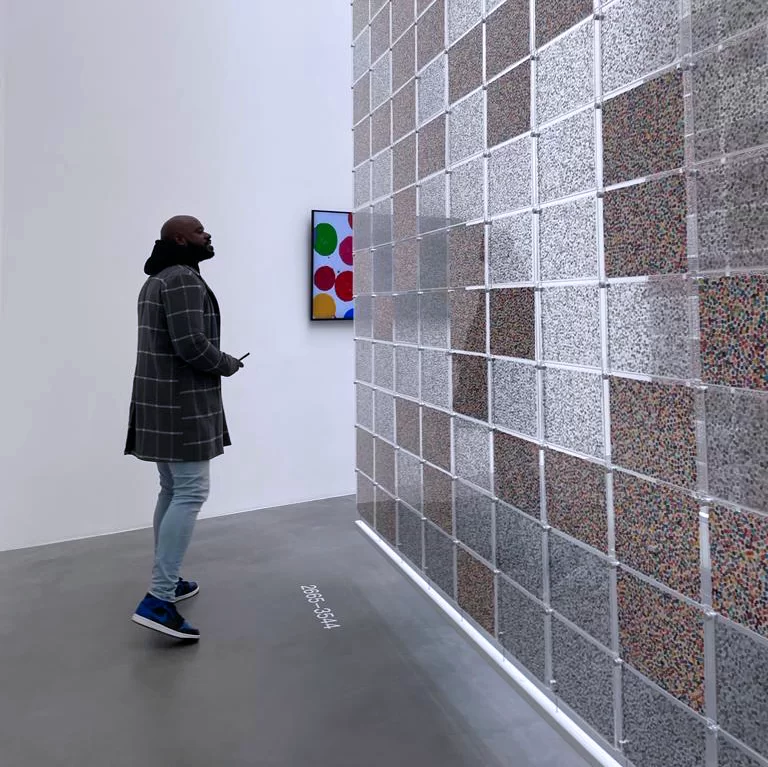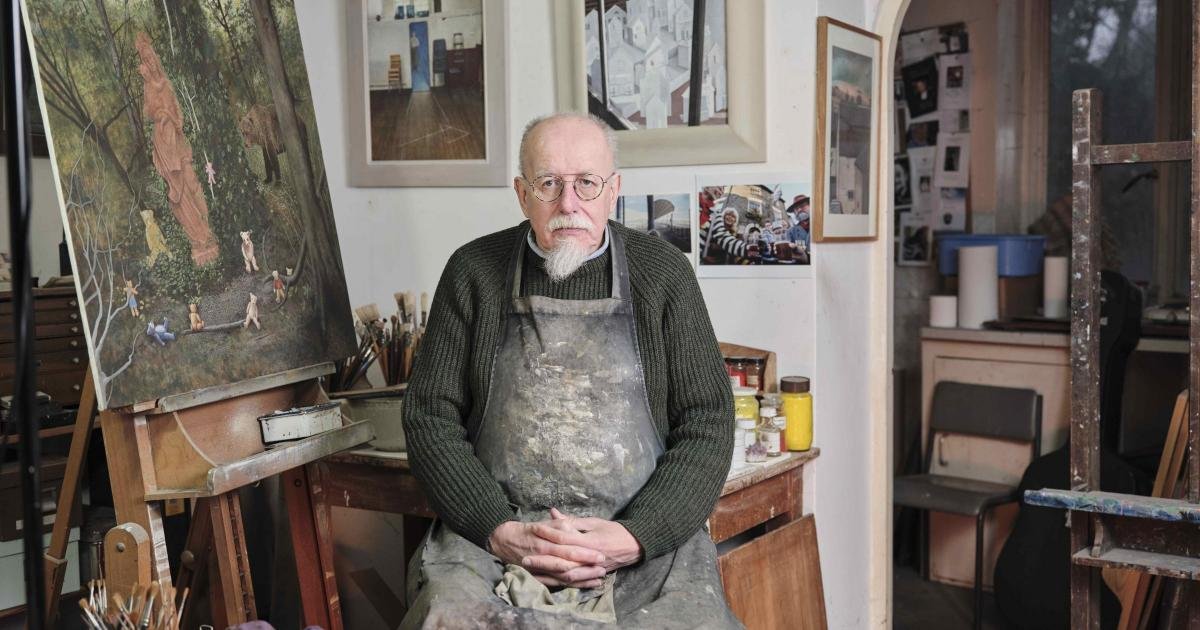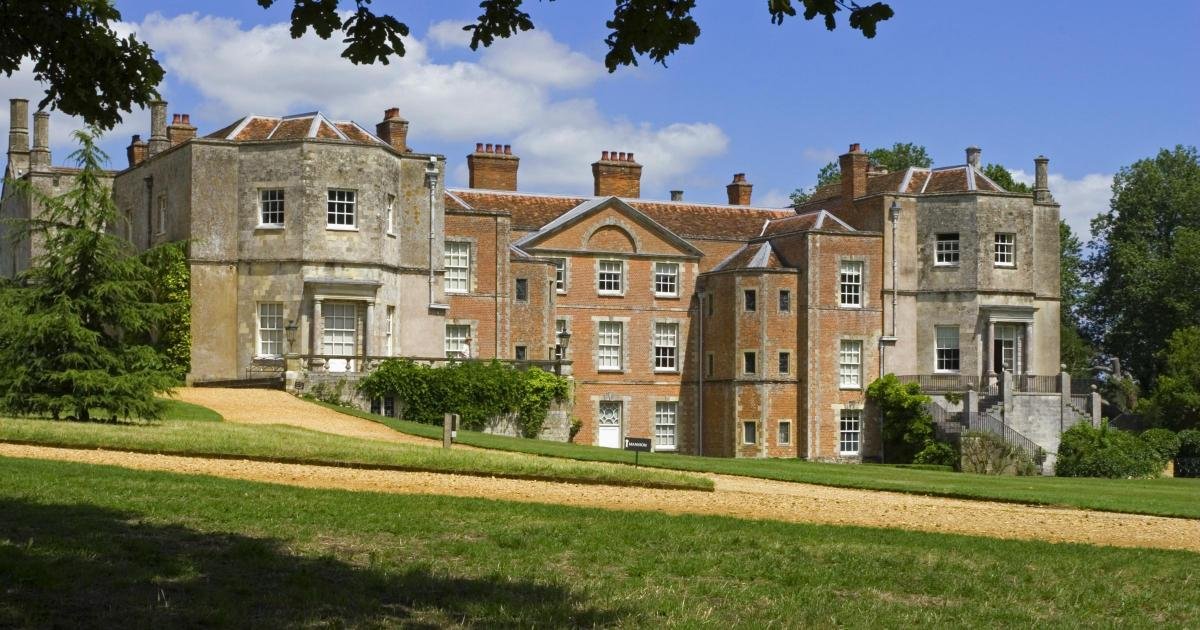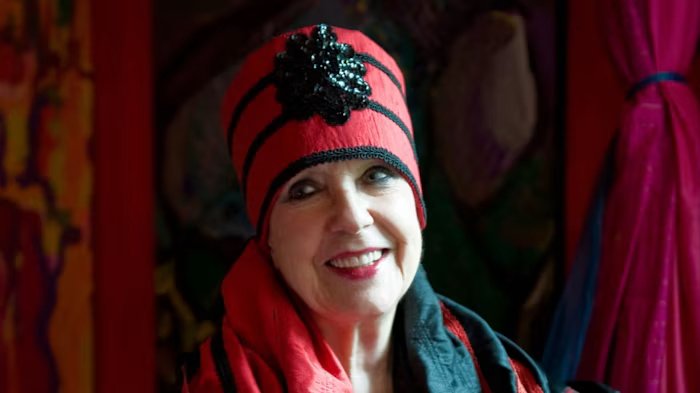Ascending to godly heights in a doorless helicopter, Donn Delson captures the world from a perspective few ever experience. For many, the chance to join him in his airborne studio, feeling the rush of wind and the thrill of heights, is a dream realised. For Delson, it is a practice steeped in artistry. As he buckles into the mechanical Dragonfly and the powerful rotors, begin their rhythmic spin, the ground beneath relinquishes its claim and a journey to explore the uncharted begins.


Image courtesy of Donn Delson
I aim to share the sense of immersion and wonder I feel by creating large-scale prints that draw viewers into the scene, almost as if they are flying alongside me
Donn Delson
Soaring up to 10,000 feet and embracing the euphoria of the moment, Delson leans out of the doorless helicopter, maintaining composure to capture brief moments of magnificence through fortuitous encounters. Through his lens, these unexpected moments transform into something entirely new.
Each capture is christened with a name that whispers what might be seen from the heavens and masks its true essence. The helicopter’s agility allows Delson to rest in a state of vigilant suspension and swoop in for more intricate compositions, offering fluid exploration of the earth’s vertical and horizontal dimensions. Each movement provides Delson with a constant flow of opportunities to frame split-second happenings as masterpieces of photography.
With a keen eye for symmetry and patterns, Delson turns these unexpected moments into abstract art, making us reconsider the familiar from a fresh perspective. An exceptional example is Delson’s “Xylophones” from his Points of View Collection, captured in 2016 as he flew over the Port of Los Angeles. The image depicts a parking area filled with horizontal rows of colourful containers that, to Delson, resembled the musical bars on a xylophone.
Delson has dedicated more than 300 hours to observing the world from a bird’ s-eye perspective. His passion for aerial views has led him to witness stunning landscapes and cityscapes from across the globe. Among many once-in-a-lifetime moments, he found himself in the middle of a rare double circular rainbow while flying over the Hawaiian Islands, a moment that went viral.
Flying along with Delson, there is an immediacy to the sights and sounds; the landscape we witness is not just viewed but felt, the wind’s whisper and the rotor’s hum creating an exhilarating and meditative soundtrack. The entire sequence, from takeoff to flight to hovering, makes you both an observer and a participant in the unfolding spectacle of Delson’s practice and invites deep introspection on our existence.
The unparalleled agility and control of the doorless chopper as it manoeuvres through the air with effortless precision, making sharp turns and sudden stops that seem to defy the laws of physics blend beauty with human ingenuity in a way that captivates.
Seeing the world from up there is just different. Delson’s work prompts reflections on our environment, urbanization, and the delicate balance between nature and human activity. Delson’s images, with their immense beauty and scale, can be humbling, inspiring appreciation for the planet’s grandeur. After witnessing him capture London from divine heights, we had the opportunity to catch up with Delson to learn more about his practice, inspiration, and more.
Hi Donn, thank you for speaking with us. Please introduce yourself to those who might need to become more familiar with your work.
Donn Delson: I’m Donn Delson, a fine art aerial photographer. My work seeks to capture the world from a bird’s-eye view, revealing unique patterns, symmetry, and textures that aren’t visible from the ground. My photography seeks to transform natural and urban landscapes into abstract works of art, photographic homages, as you will, inspired by the styles of artists like Piet Mondrian, Paul Klee, Mark Rothko, and Annie Albers.
I’m intrigued with how looking at things from different perspectives and angles often yields an entirely different impression, in essence appearance versus reality. What I hope to accomplish in my aerial photography is to give the viewer the opportunity to see things through a different lens.


Image courtesy of Donn Delson
Donn, we’re interested in hearing about some specific early moments from your journey into the arts. Could you share a couple of these moments and what motivated you to pursue a career in this field?
Donn Delson: My journey into the arts began at a young age. I held my first Brownie box camera when I was ten years old and was instantly captivated by the ability to capture moments. In high school, I graduated to a Rolleiflex film camera and took sports action shots for the school newspaper.
However, it wasn’t until I retired in 2010 that I had the time to fully immerse myself in photography. My first focus was on landscape, industrial laser, and long-exposure photography. A significant turning point came in 2015, during a trip to New Zealand, where I had the chance to shoot from an open-door helicopter.
The experience of seeing the world from above, combined with the creative challenges it presented, inspired me to pursue aerial photography. The ability to blend my passion for photography with the hunt for abstract patterns and forms, often titled for what they look like from above, has been a driving force in my work for the past nine years.


Image courtesy of Donn Delson
Your approach to photography is intriguing. You’ve mentioned that many of your images are serendipitous sightings rather than planned captures. Could you elaborate on how you balance the spontaneity of these moments with the need for technical precision and composition?
Donn Delson: Balancing spontaneity with technical precision is a delicate dance. While I briefly use tools like Google Maps and satellite imagery for initial planning, relatively close-up scanning across wide stretches of land doesn’t usually offer me, except from the broadest standpoint, the ability to see something I know will result in an image that excites me. The most captivating shots are usually discovered in the moment. Once in the air, I rely on my instincts and experience to spot intriguing compositions.
However, capturing these moments flying in a “doorless helicopter with the wind rushing in and the inherent vibration from the rotors and turbulence requires meticulous attention to technical details—shutter speed, aperture, and stabilization techniques are crucial to overcoming the challenges of capturing tack sharp images that can be enlarged to as much as twelve by eighteen feet. My smallest size limited-edition piece is 32”x48” (81cm x 121 cm) and the average piece size is 48” x 72” (121 cm x 183 cm)
An example of a serendipitous sighting would be when I was in Japan in 2018 to shoot the cherry blossoms over the mountains east of Kyoto. I’d always seen lots of pictures of cherry blossoms from the ground, but never from above. We were returning to the helicopter base having had a successful flight, when in the distance, I spotted a little tiny rectangular purple patch.
We flew over and discovered the most beautifully manicured, strategically planted rows of blossoming cherry trees in various stages of growth. As I looked down from about 3500 feet, the image below could only be that of the rows of beads on an abacus, and hence it was aptly named.


Image courtesy of Donn Delson
Donn, your unique perspective of viewing the world from a bird’s-eye view provides an immersive experience for you as an artist. How do you aim to convey this sense of immersion and wonder to your audience through your photography, and what kind of impact do you hope it has on them?
Donn Delson: There are few things I’ve done in my life that I’ve found to be more inspirational than looking out and down on the beauty of our world from a “doorless” helicopter with no window to encumber or distort the view. I aim to share the sense of immersion and wonder I feel by creating large-scale prints that draw viewers into the scene, almost as if they are flying alongside me.
The detail and scale of my shipping container artwork, with a reverent nod to Mark Rothko, invites viewers to wander through the blocks of color. My solo show in Phoenix next January will be completely focused on container art. I hope my photographs inspire people to see the world from new perspectives, to appreciate the beauty of our world from above, and to be open to rethinking their assumptions about what they are seeing.


Image courtesy of Donn Delson
How does the aerial perspective change the way you perceive and capture symmetry, patterns, and textures? Can you discuss a particular instance where this perspective revealed something unexpected or transformative?
Donn Delson: As I mentioned, things look very different from above relative to what they may be in reality on the ground. With respect to things built by man, I’m fairly certain the original architects had no idea, nor did they likely plan for, what things would look like from above. The aerial perspective dramatically alters how I perceive symmetry, patterns, and textures. Everyday scenes can transform into abstract compositions.
One instance in 2016, was when I flew over a series of freight containers at the Port of LA. I was excited to spot six symmetrically positioned horizontal rows of shipping containers that looked like the tonal bars on a musical xylophone. My excitement increased as a single, white semi-tractor-trailer began driving from the right between the rows. Getting the pilot to quickly maneuver me around to take the shot, I accomplished it no more than three or four seconds before it drove out of the frame. Xylophones in my Points of View collection has become one of my favorite images. People first seeing it often mistake it for a xylophone or bookshelves until they see the truck.
Your travels have taken you from Japan to The Netherlands, England to Israel, and the United States. How do different cultures and landscapes influence your work, and do you have a favourite location that continually inspires you?
Donn Delson: Traveling exposes me to diverse landscapes and cultural aesthetics, each offering unique visual elements. In Japan, the delicate beauty of cherry blossoms and the serene landscapes are in stark contrast to the urban density of cities like Tokyo.
The Netherlands, with its meticulously planned tulip and agricultural fields and canals, presents a fascinating interplay of human intervention and nature. England’s blend of historic and contemporary architecture is endlessly inspiring, especially London’s skyline. While it’s hard to pick a favorite, I find myself continually inspired by the dynamic contrasts in cities like New York and London, where the past and present coexist in a constantly evolving urban tapestry.


Image courtesy of Donn Delson
The story of capturing a double circular rainbow over Molokai is fascinating. How do you prepare yourself to seize such rare and fleeting moments, and what do you feel when you manage to capture them?
Donn Delson: Capturing rare moments like flying into a double circular rainbow requires a mix of preparation and readiness to seize the unexpected. I always ensure my equipment is in top condition and my settings are optimized for quick adjustments.
It was about 8 o’clock in the morning, and we were flying at about 3000 feet when we were surprised by a sunshower. As we flew through the downspray, I suddenly found myself physically entering into a double circular rainbow, the first I had ever seen. I’ve been told that we don’t normally see them because, on land, we are only able to see 180° due to the horizon.
Luckily, my photographer friend in the front seat was able to turn around and capture a quick video and shot of me shooting through the double circular rainbow. That video has now been seen across social platforms by more than five million viewers. Again, it’s a gift when these serendipitous moments present themselves. It might be akin to the thrill an artist feels feel when a spontaneous brushstroke perfectly completes a canvas. These fleeting moments remind me of the magic and unpredictability of nature and the privilege of being able to capture and share them.


Image courtesy of Donn Delson
Your tools of choice include an open-door helicopter and the Fuji GFX 100 camera, which has high-resolution capabilities that are crucial for your practice. How do you stay updated with the latest photographic technology, and what role does it play in pushing the boundaries of your expression?
Donn Delson: My go-to cameras are the Fuji GFX 100 and the Nikon D850. The Fuji’s 100+ megapixels allow for incredible detail and large-scale prints, while the Nikon D850 is a powerhouse for low-light conditions. I use a variety of lenses, stabilizers, and filters to ensure I’m able to enlarge and offer the highest-quality images. Shooting in raw gives me the flexibility to fine-tune details in post-production to make the image most like I am viewing it.
Advances in AI now allow me to remove a lot of the noise and artifacts from low-light images that would previously have made some images incapable of proper enlargement. As camera companies continue to evolve their equipment, staying updated with the latest photographic technology is essential. There are new bodies and/or model updates for some of what I use. I regularly follow industry news, attend photography expos, and engage with other professionals to stay informed about new advancements.
With a diverse and loyal base of private, corporate, and commercial collectors worldwide, how do you view your legacy as an aerial fine art photographer? What impact do you hope your work will have on future generations of artists and viewers?
Donn Delson: I hope my legacy as an aerial fine art photographer will inspire others to see the world from new perspectives, knowing that everything may not always be as it seems at first glance. I hope my work encourages artists to explore the intersection of art and technology, push boundaries, find beauty in unexpected places, and appreciate the complexity and interconnectedness of our world.


Image courtesy of Donn Delson
Lastly, could you share your philosophy of photography? How do you describe and understand the core importance of art in your life and career?
Donn Delson: My philosophy of photography centers around the idea of seeing the world from different perspectives and finding beauty in the unexpected. Art, for me, is about exploration and expression. It’s a way to communicate emotions, ideas, and perceptions that words may fail to properly convey. Large-scale photography, by its scope, hopefully allows me to share my vision in a way that connects with others.
At seventy-five, the importance of art in my life lies in its ability to inspire, challenge, and transform the artist and the viewer. Annie Albers once said, “You know it’s great art, if it makes you breathe differently.” I know I’ve found a magical shot when it makes me catch my breath, and then I’m inspired to be able to share it.
https://www.instagram.com/donndelson/
©2024 Donn Delson








